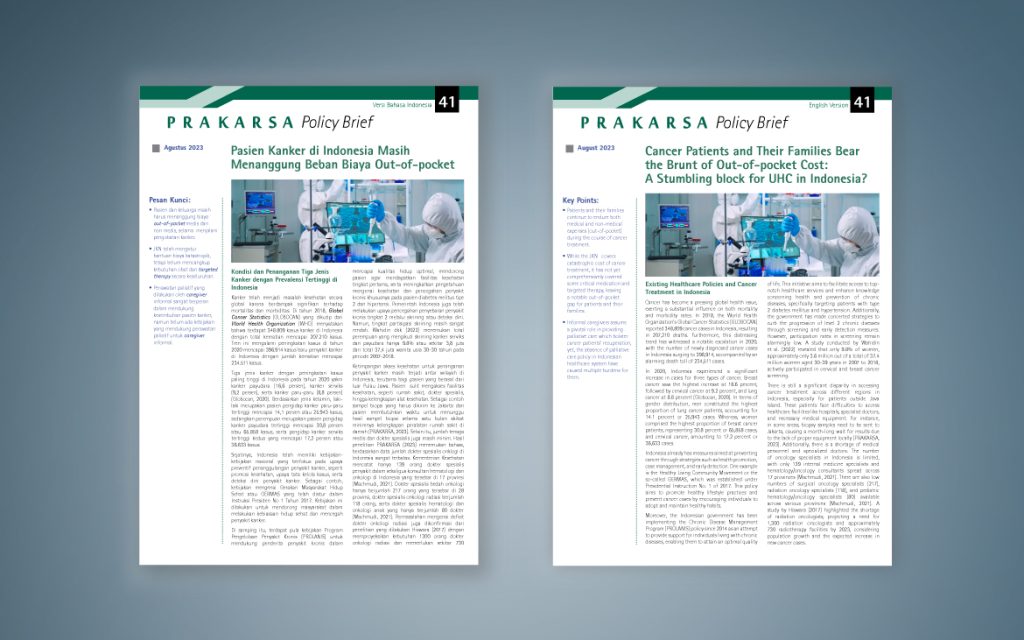
There are three cancers with the highest prevalence in Indonesia in 2020, namely breast cancer, cervical cancer and lung cancer. The problem of inequality in access to health for the treatment of cancer in Indonesia has so far not been resolved by the government. Even though JKN already covers treatment and care for cancer patients, not all types of cancer drugs are covered by JKN. This causes patients and their families to experience a financial burden or out-of-pocket (OOP) health.
JKN has regulated catastrophic cost assistance, but has not yet covered the need for medicine and targeted therapy as a whole. Cancer patients also have to take treatment outside their domicile due to inadequate health facilities to treat cancer in their area.
There is no policy that regulates palliative care carried out by informal caregivers, even though their role is very important in supporting the course of treatment and care for cancer patients.
Then what should be done by policy makers to overcome this problem? Find the answer in Policy Brief 41 – Cancer Patients in Indonesia Still Bear Out-of-pocket Costs.

